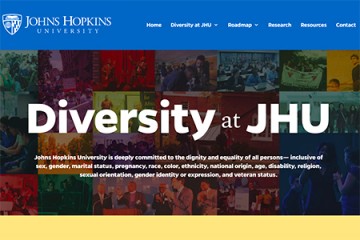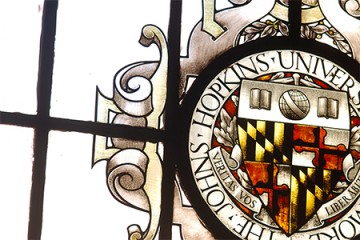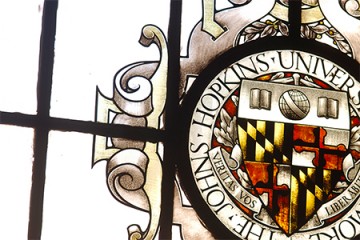A panel of speakers from Johns Hopkins University's Homewood campus convened Thursday evening to discuss the recently published JHU Roadmap on Diversity and Inclusion, a comprehensive plan that gives an overview of ongoing diversity efforts at the university and also outlines next steps.
Comments from participants focused both on how the document succeeds and also where it falls short in addressing the needs of various Johns Hopkins constituents.
"An important factor that is rarely discussed in the roadmap is the quality of life for black students on campus," said Tiffany Onyejiaka, president of JHU's Black Student Union. "The vast majority of black students on campus have had very negative experiences—people as young as first-semester freshmen are feeling disengaged and disillusioned."
Chase Alston, co-chair of Students for a Democratic Society, said she sees a cyclical nature to efforts to promote diversity at the university.
"There's a lot of increased activism, and pushing for change, and then a little bit of movement, and then things die down," she said. "It repeats every few years, but the university continues to make profit and continues to be the overarching winner in the situation. I think the roadmap tries to address that cycle, but it also masks the problem."
The roadmap, formally released in November, aims to address key issues raised by students and others in recent years, including the lack of diversity among faculty, harassment, and hate speech. It also lays out specific actions to promote diversity, inclusion, and equity across the university—among faculty, students, and staff; in the institution's stated principles, curricula, and campus climate; and in how the university engages with Baltimore.
Thursday's event was organized by the student coordinating committee within the Center for Africana Studies—undergraduate J.B. Brown and PhD candidates Gloria Jirsaraie and Bryan Brentus Carter. They said they plan to create a document encapsulating criticisms shared at the gathering and present it to university administrators.
"There's certainly a lot about the roadmap that deserves to be praised," Jirsaraie said. "But there has also been strong criticism about some of its failings. … We wanted this to be a candid conversation about some of those concerns."
Panelists were selected to represent specific groups: Onyejiaka spoke on behalf of underrepresented minority students; Alston represented staff; James Page, JHU's interim vice provost and chief diversity officer, represented the Hopkins administration; Floyd Hayes, a retired faculty member in the Center for Africana Studies, represented faculty; and Abby Neyenhouse, assistant director at the Center for Social Concern, represented the greater Baltimore community.
Hayes said he believes that by omitting certain issues like anti-black racism and the institution's history of discriminatory hiring practices, the roadmap—and by extension, JHU's administration—sidesteps those issues.
Page voiced optimism about Johns Hopkins' commitment to creating "an environment where people from all backgrounds can flourish." He pointed out that the university has increased transparency and accountability through the creation of the Faculty Diversity Initiative, which produced composition data on all Johns Hopkins faculty.
"The transparency that we have exposed ourselves to by saying 'here's what diversity looks like at every level in our organization from the faculty perspective'—there are not many organizations that are doing that kind of work," he said.
During a question and answer portion of the event, historian and faculty member N.D.B. Connolly expressed frustration that the Johns Hopkins commitment to innovation in its research endeavors does not seem to extend to its efforts to address diversity.
"We don't think about doing what everybody else does relative to cancer research or life in the humanities," he said. "But we need to innovate in this area, and we should make it a point of emphasis to do so … to make sure that anybody else who wants to mirror us follows our template, as opposed to the other way around."
Posted in University News
Tagged diversity










